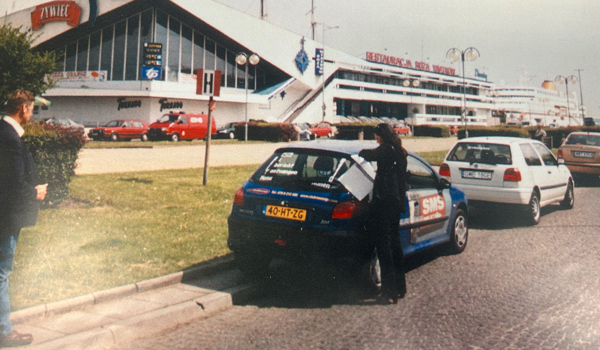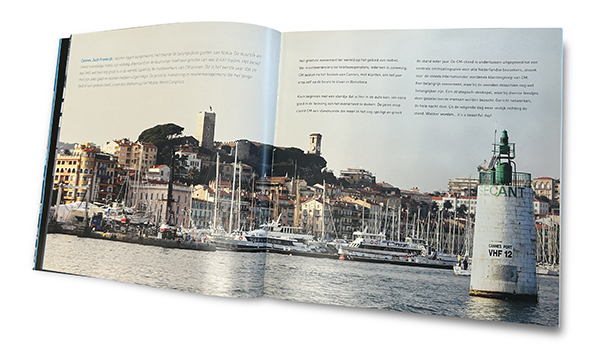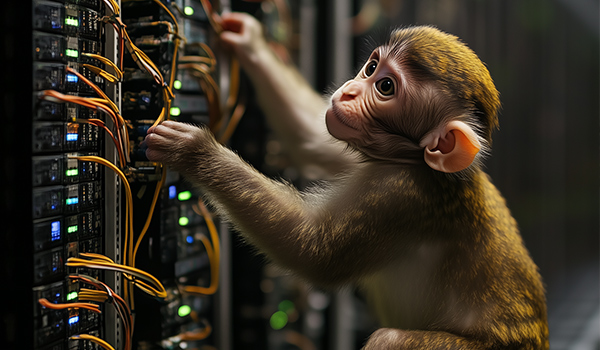- One step forward, two steps back
- Cultural differences: Maybe we’re the weird ones
- Innovation beyond borders
- Ruffling feathers in the market
- Embracing chaos to drive progress
- The future is boundless
One step forward, two steps back
Our first attempt at international expansion was in 2003, in Poland. At the time, SMS and club culture were taking off, but after three years, it became clear that balancing this with our success in the Netherlands wasn’t sustainable. A decade later, Jeroen van Glabbeek (CEO and co-founder at CM.com) and Gilbert Gooijers (COO and co-founder at CM.com) decided to try again—this time in Belgium. By 2015, we added the UK, Germany, and France.
Each market required a unique strategy. As Jeroen explains, "It's really about trial and error. If something doesn’t work, you adapt. Sometimes you take one step forward, sometimes two steps back, but you always push ahead." In each country, we built local teams who knew the market and spoke the language. Jeroen and Gilbert constantly looked for openings—whether through a local client or a strategic acquisition.

Cultural differences: Maybe we’re the weird ones
Whenever we entered a new country, we’d think, "This place is so different from the Netherlands." But after a while, we realised that maybe we were the ones who were different. Many countries have a more hierarchical culture, while our approach is quite the opposite.
Recognising this, the founders decided to manage international operations from Paris, led by Hodny, a Frenchman skilled at navigating cultural nuances. We aimed to be a cohesive team, not just enforce the Dutch way of doing things. As Gilbert puts it, "It’s important to understand others first before expecting to be understood."

This article is part of our series, "CM.com: 25 Years at the Forefront of Innovation." If you missed it, check out the previous articles:
From DIY Solutions to a World-Class Operation
Will You Join Me at Highstreet?
Innovation beyond borders
Our journey wasn’t just about expanding into new markets—it was also about exploring new industries and developing innovative products. Around 2010, we ventured into the government sector, a completely different environment from the nightclub scene we knew so well. To navigate this new landscape, we assembled a team of experts who spoke the language of that industry.
At the same time, we were deeply involved in Premium SMS, which transformed us from a tech company into something more akin to a financial services provider. We handled transactions between users and clients, leading to breakthrough innovations. This was how tools like Geef Mobiel and IdealQR were born, enabling charities to fundraise more effectively. "Collectors were facing challenges as fewer people carried cash, but with a QR code, donations became effortless," Jeroen shares.
Ruffling feathers in the market
Our growing success didn’t sit well with some of our competitors. A few of their clients had switched to us, attracted by our more competitive pricing. One rival was so frustrated that they even took a former client to court for choosing us. During the proceedings, they scoffed, claiming, "Their servers are basically housed in a chicken coop — it’s completely amateur."
When the client won the case, Gilbert couldn’t resist a playful jab: "Why don’t you come by and feed the chickens sometime?" He knew our self-built infrastructure was more than up to the task.

Embracing chaos to drive progress
At CM.com, we don’t believe in sticking to rigid plans. Instead, we thrive on flexibility, which sometimes means welcoming a bit of chaos—it’s what sparks our creativity and drives innovation. As Jeroen puts it, "If nothing ever goes wrong, you’re probably not moving fast enough. A little chaos keeps the momentum going." We even put our systems to the test with experiments like ‘Chaos Monkey.’ "Once, I cut the power to our server room just to see how we’d react. It’s like a fire drill," Jeroen laughs.
Gilbert adds, "It’s not about creating chaos just for the fun of it. We understand that the world is unpredictable, and by embracing that unpredictability, we find new opportunities to innovate."
The future is boundless
At CM.com, we continue to push boundaries — exploring new markets, developing cutting-edge technologies, and discovering better ways to serve our clients. "The future is wide open; we’re just getting started," says Gilbert, with a spark of excitement in his eyes.
